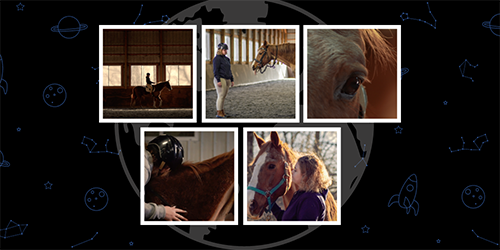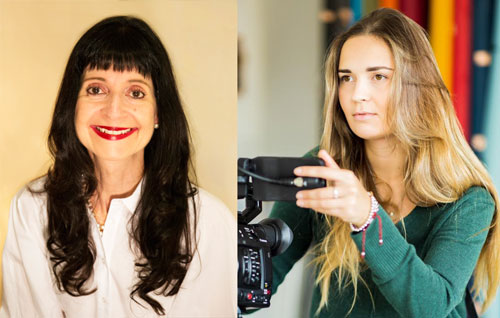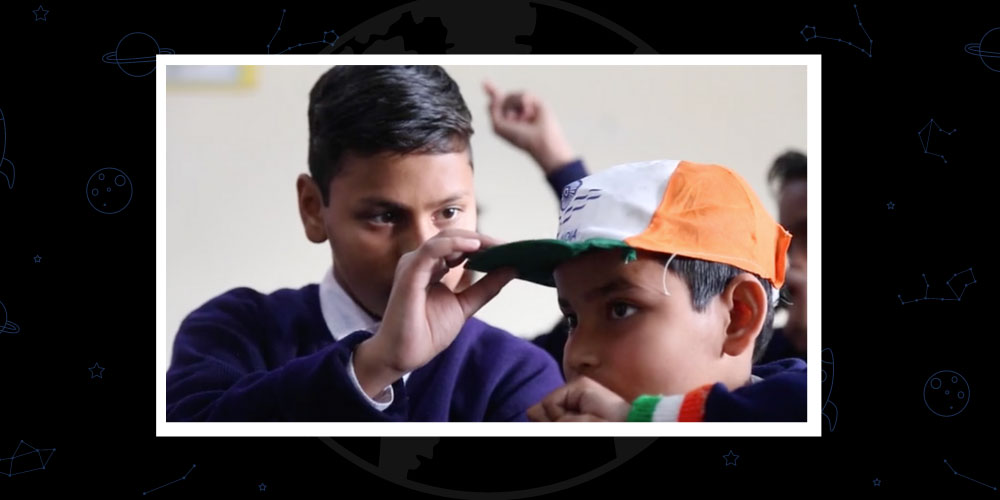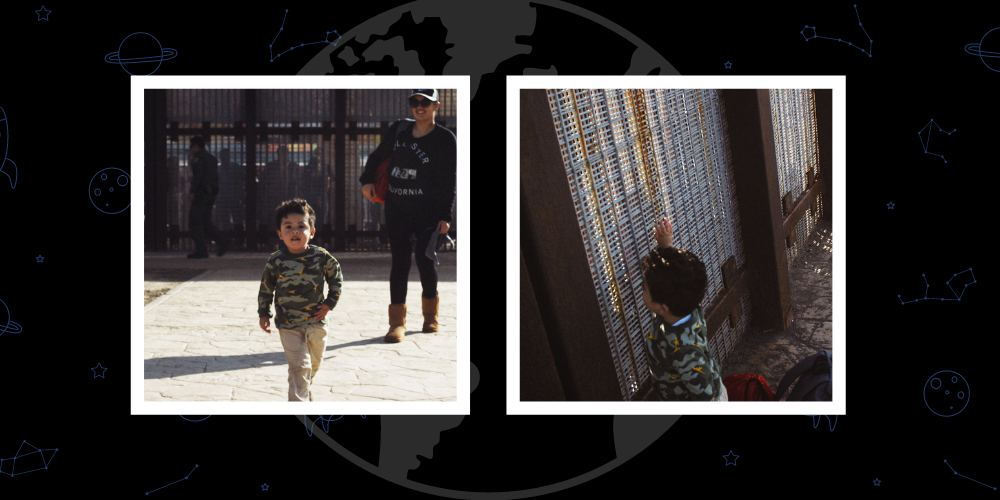這個月, 觀眾可以放映 不受束縛 上 星球課堂網絡YouTube頻道. 記錄人與馬之間的聯繫, 不受束縛 explores a unique rehabilitation program, 馬輔助治療, for youth who are survivors of or are at risk of sex trafficking.
Equine-assisted psychotherapy, also called equestrian therapy or horse therapy, is an experiential mental health treatment that involves a person in therapy interacting with horses. The therapy has been shown to treat a wide range of mental health issues, addressing both physical and psychological concerns
Ukrainian Multimedia Producer, Cinematographer and Filmmaker Eveline Levin is the Director of 不受束縛. Levin says she is driven by emotionally engaged storytelling, human interest and social change.
全球搜索教育 is pleased to welcome Evelin Levin.
伊芙琳, what inspired you to share this story?
I’ve been an equestrian my whole life and I’ve always known horses are able to help people with disabilities. I remember years ago, I watched a child with cerebral palsy go from being afraid of even touching horses to standing up from a wheelchair for the first time after riding for just 3 個月. Ever since then, I wanted to explore the human-animal bond and the effect horses can have on people. While looking for the right story, I met Nancy Rosen, and she introduced me to ways horses can help people not just with physical disabilities, but also with deep trauma.
Watching the film, it is clear that Nancy Rosen also plays an important part in making Safe Harbour a wonderful place for young girls to heal from their past. During the filmmaking process, in what ways did you see Nancy nurture people like Zoe?
Nancy Rosen is absolutely incredible at contextualizing and mediating between horses and trauma. Through this equine program, I watched her sort of embody a parent, a thoughtful mentor, and at times, even a friend to the girls in the program. I would watch Zoey, who would barely say a word to me; even off camera, light up with excitement and talk away about her personal life with Nancy. She really became that anchor of unbound trust to the girls in the program.
Being a place where young girls can improve their mental health, do you believe places like Safe Harbour help more than traditional ways of getting therapy? 如果是這樣的, do you think we should redefine the way we view mental healing?
I can’t really say one animal-assisted therapy is better than traditional therapy. In fact, I believe they can complement each other, but there are distinctive differences between the two. Nancy would always tell me how some people feel less defensive around horses in a barn than they do with a therapist in an office setting; horses are able to provide comfort and immediately reduce levels of pain and anxiety. Another important difference is that horses always give undeniable, non-verbal feedback about one’s inner turmoil. 他們是, 例如, you can’t come into the barn and say you don’t feel angry when the horse moves away and avoids contact with you. 換句話說, horses offer an alternative, more primal way to keep your emotions in check and be honest with yourself.
What do you hope young audiences take away from this film?
I hope to show young audiences the sophistication of human-animal bonds and the ways they can help with mental health issues beyond traditionally accepted methods of therapy and medication.
Thank you Eveline.
C.M. Rubin and Eveline Levin
不要錯過 不受束縛 (由NFFTY策劃) 上 星球課堂網絡YouTube頻道.







最新評論